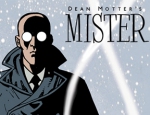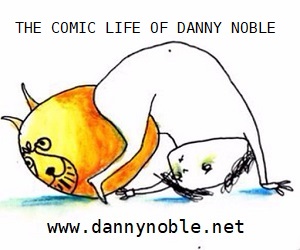More Nineties properties get the comic book version of a reality TV makeover, courtesy of Joe Casey, et al.
Billed as Comics’ Greatest World when it first appeared back in the Nineties, Dark Horse’s first major foray into mainstream superhero comics turned out to be a creative high water mark for a decade now notorious for the obscene amount of books published with the words “blood” or “death” in the title. Along with independent publishers such as Valiant Entertainment and Malibu Comics, Dark Horse jumped on the speculator-fueled bandwagon and was responsible for creating some of the best superhero comics of the day. In an age when every publisher was dreaming up their own fictional universes, Dark Horse’s claim of creating Comics’ Greatest World wasn’t just bravado.
Yet, just as things were really getting interesting for the likes of Ghost, X, and Amazing Grace, the speculator bubble burst like the big, nasty butt-pimple it was and the denizens of Comics’ Greatest World, like every other independently owned and operated superhero universe suddenly found themselves occupying prime real estate in the quarter bins. This is comics, though and it seems all of the publishers have recently been bitten by the reboot bug. Enter Joe Casey and a cadre of his hand-picked artistic upstarts to serve as Dark Horse’s very own agents of creative change and Comics’ Greatest World is once again poised to take on the production-line quality and approach of Marvel and DC.
Following in the footsteps of Swiercynski and Nguyen’s dark, brooding relaunch of the ultra-violent antihero X, Casey’s Catalyst Comix expands Dark Horse’s superhero universe by concentrating on a handful of properties created by Barbara Kesel. Starting off with “The Ballad of Frank Wells,” Casey immediately sets an idiosyncratic tone unlike anything in recent memory (although Joe Keatinge’s incarnation of Glory comes very close). Infused with a healthy dose of far-out Seventies cosmic craziness and cynicism, Casey’s take on Nineties superheroes reads more like a Steve Gerber-written issue of The Defenders, circa 1975.
Dropping his audience into the middle of a horrific cosmic apocalypse that initially sends Wells packing, Casey approaches the central conflict with an existential zeal, challenging his protagonist both on the physical and metaphysical planes. As Wells is eventually left wondering what’s next in his latest reincarnation, Casey dives headlong into the next feature in the anthology, which explores what really happened to end the threat from Amazing Grace’s point of view. Again the imminent danger here works on a number of different physical and psychological levels. One can’t simply punch a cosmic apocalypse into submission, after all.
If the first two stories in Catalyst Comix explore the superhuman condition from an archetypal vantage point, then the final tale in Casey’s capes-and-spandex tour de force brings it all back down to earth. Featuring a new iteration of the Agents of Change (formerly known as Catalyst), this last story acts as something of an epilogue to the overarching plot, even as it lays the foundation for a more grounded examination of what it means to be a hero in a world that largely marginalizes them. Heroes like Elvis Warmaker, Wolfhunter, Ruby, and Rebel struggle to find continued relevance in a society more interested in the latest celebrity scandal or viral internet campaign.
With its interlocking plot threads, metaphysical horrors, and internal character conflicts, Casey’s re-imagining of Comics’ Greatest World challenges our understanding of how superheroes have evolved over the last decade or so. With many of the properties born in the 1990s failing to stand the test of time, Casey and his squad of well-chosen, uber-talented artists remind us that there were a few surprising gems that managed to avoid the creative pitfalls a lack of imagination invites. Building off of the complex and often flawed heroes of Dark Horse’s singular superhero universe, Casey and company succeed in rejuvenating a world we were all just getting to know the first time around.
Joe Casey (W), Danny McDaid, Paul Maybury, Ulises Farinas (A), Brad Simpson (C) • Dark Horse Comics, $2.99, July 3, 2013.









